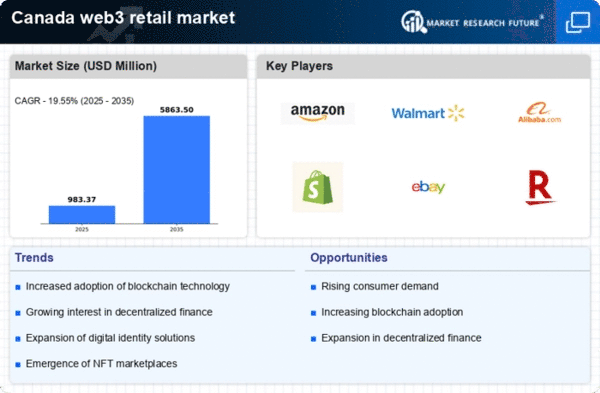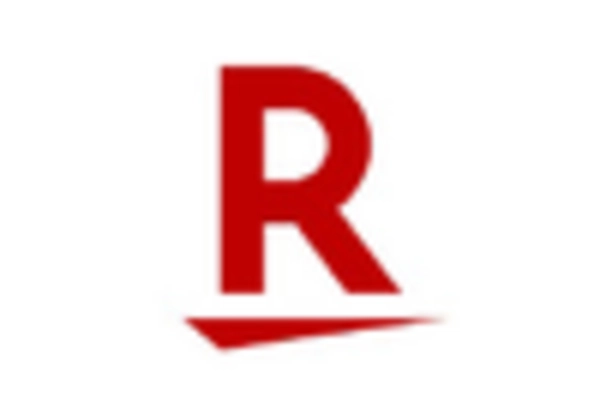Rise of Digital Ownership
The concept of digital ownership is gaining traction within the web3 in-retail market, particularly in Canada. Consumers are increasingly interested in owning digital assets, such as NFTs, which can represent ownership of unique products or experiences. This trend is supported by data showing that the NFT market in Canada has seen a growth rate of over 50% in the past year. Retailers are beginning to explore how they can integrate digital ownership into their offerings, potentially creating new revenue streams and enhancing customer engagement. As this trend continues, it may reshape the way consumers interact with brands and products in the retail space.
Consumer Demand for Transparency
In the web3 in-retail market, there is a growing consumer demand for transparency in product sourcing and supply chains. Canadian consumers increasingly prefer brands that provide verifiable information about their products, including ethical sourcing and environmental impact. This trend is reflected in a survey indicating that approximately 70% of consumers are willing to pay a premium for products that are transparently sourced. As a result, retailers are leveraging blockchain technology to enhance traceability, thereby fostering trust and loyalty among consumers. This shift towards transparency is likely to drive the adoption of web3 solutions, as retailers seek to meet the expectations of a more informed customer base.
Regulatory Support for Blockchain Initiatives
Regulatory frameworks in Canada are evolving to support the integration of blockchain technology in the web3 in-retail market. The Canadian government has shown a willingness to embrace innovation, with initiatives aimed at fostering a conducive environment for blockchain startups. This regulatory support is crucial, as it provides a level of security and legitimacy for businesses looking to adopt web3 solutions. For instance, the Canadian Securities Administrators have issued guidelines that clarify the legal status of digital assets, which may encourage more retailers to explore blockchain applications. As regulations become clearer, the potential for growth in the web3 in-retail market is likely to expand.
Shift Towards Decentralized Consumer Experiences
The shift towards decentralized consumer experiences is becoming increasingly relevant in the web3 in-retail market. Canadian consumers are showing a preference for platforms that offer peer-to-peer interactions, reducing reliance on traditional intermediaries. This trend is evidenced by the rise of decentralized applications (dApps) that facilitate direct transactions between consumers and retailers. Data suggests that the use of dApps in retail is projected to increase by 40% over the next two years. As consumers seek more control over their shopping experiences, retailers may need to adapt their strategies to incorporate decentralized solutions, thereby enhancing customer satisfaction and loyalty.
Enhanced Customer Engagement through Gamification
Gamification is emerging as a powerful tool in the web3 in-retail market, particularly in Canada, where retailers are looking to enhance customer engagement. By incorporating game-like elements into shopping experiences, brands can create more interactive and enjoyable environments for consumers. This approach has been shown to increase customer retention rates by up to 30%. Retailers are utilizing blockchain technology to create unique rewards and loyalty programs that incentivize repeat purchases. As the competition in the retail sector intensifies, the ability to engage customers through gamified experiences may become a critical driver for success in the web3 in-retail market.
















